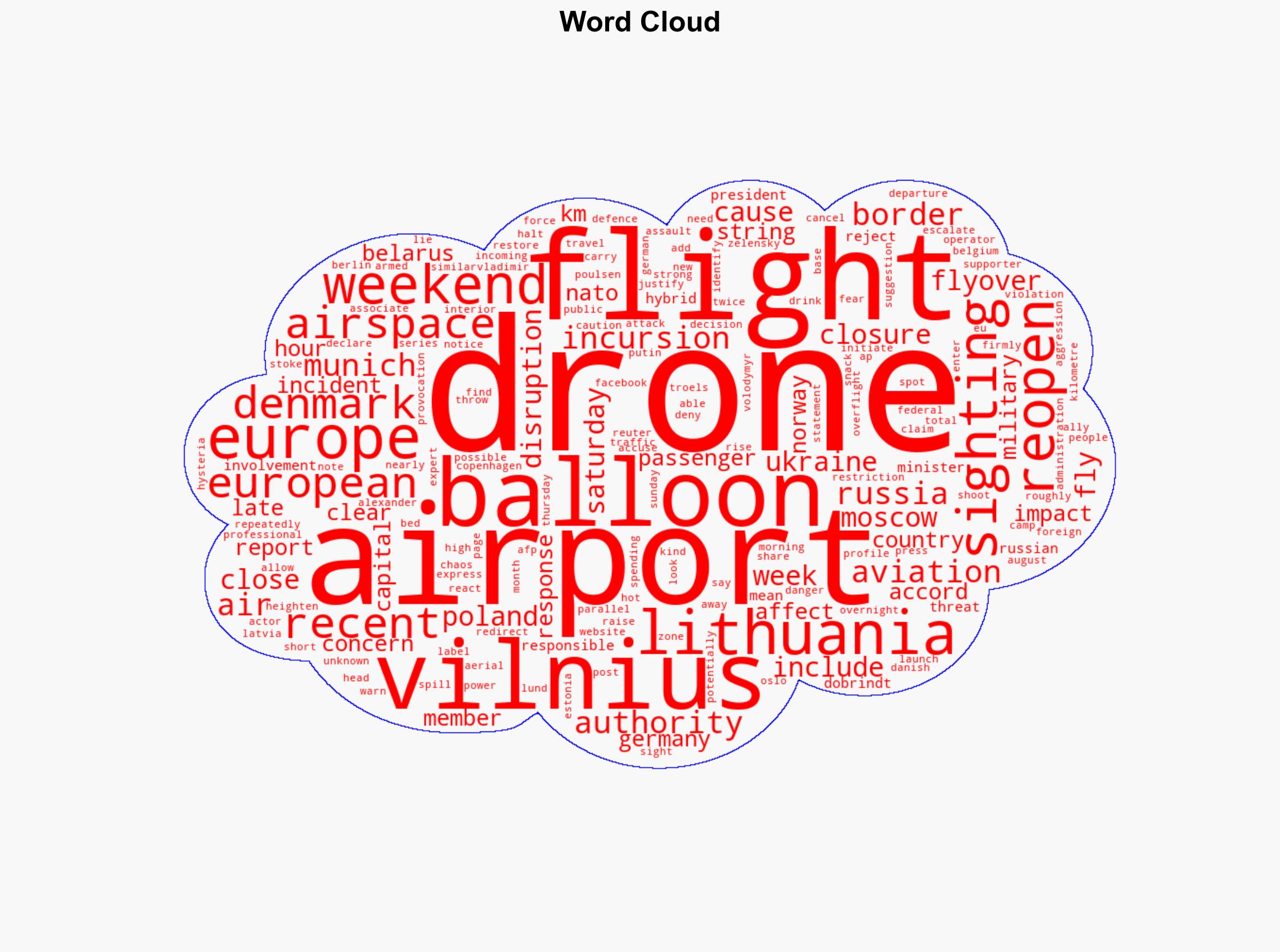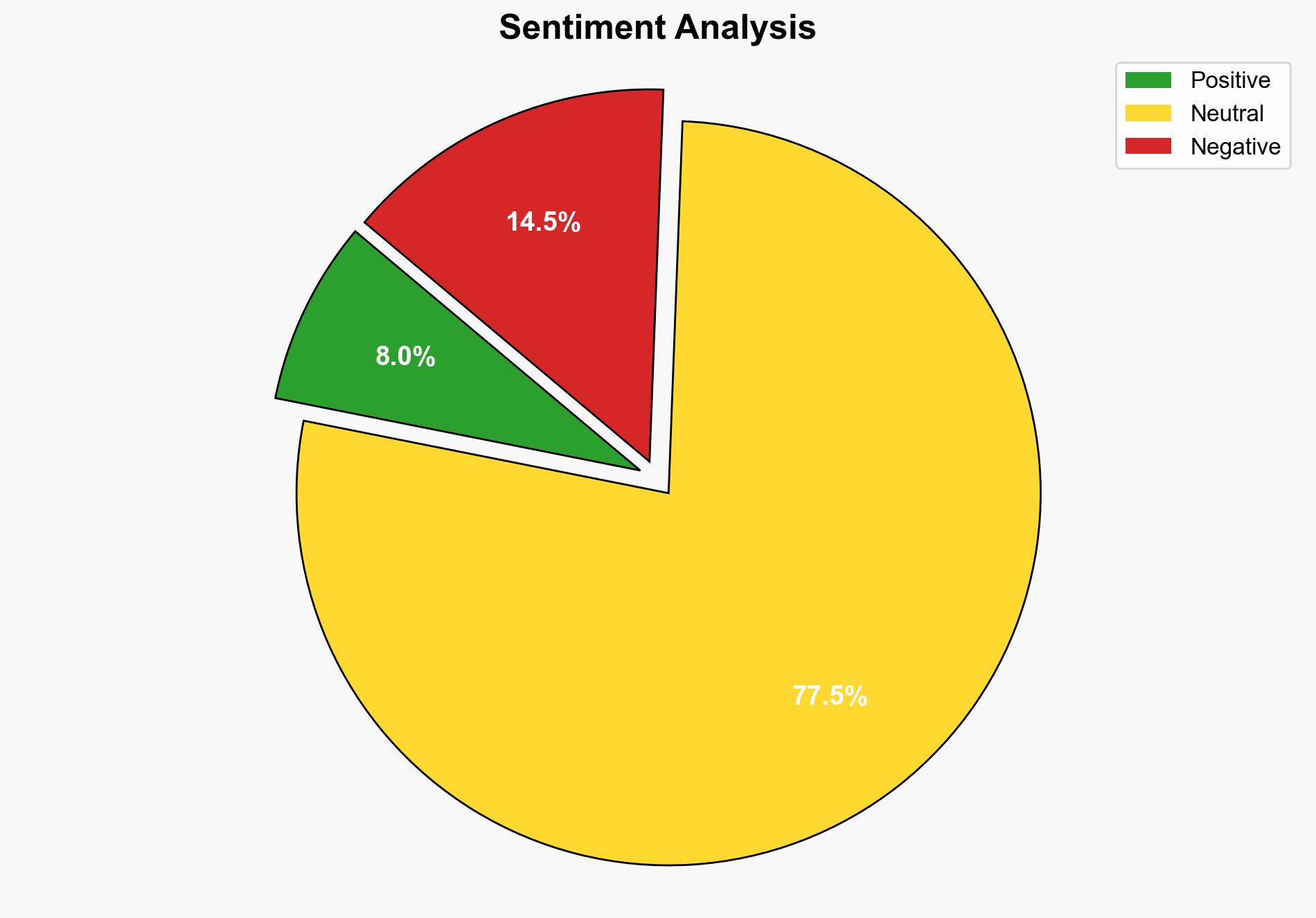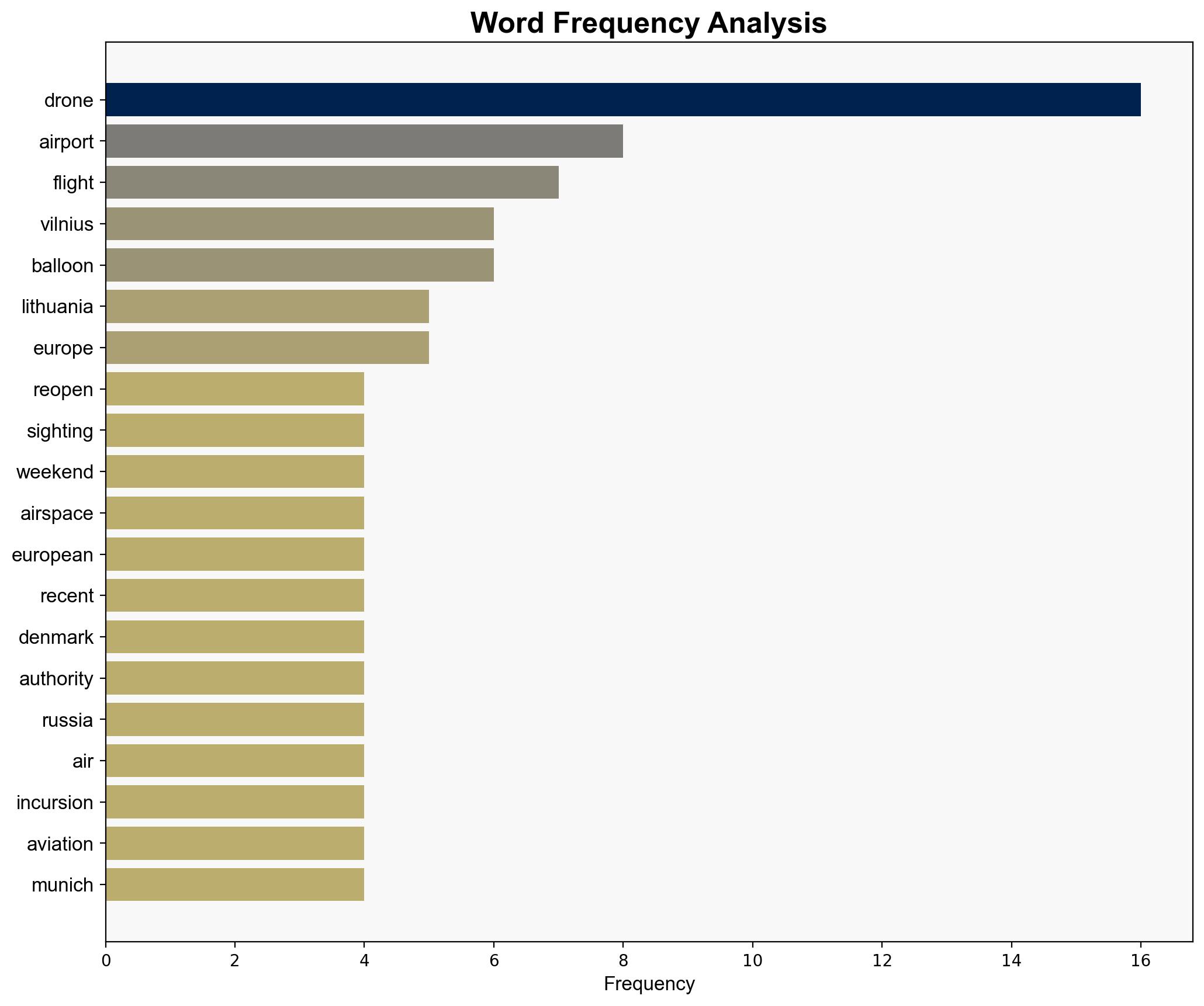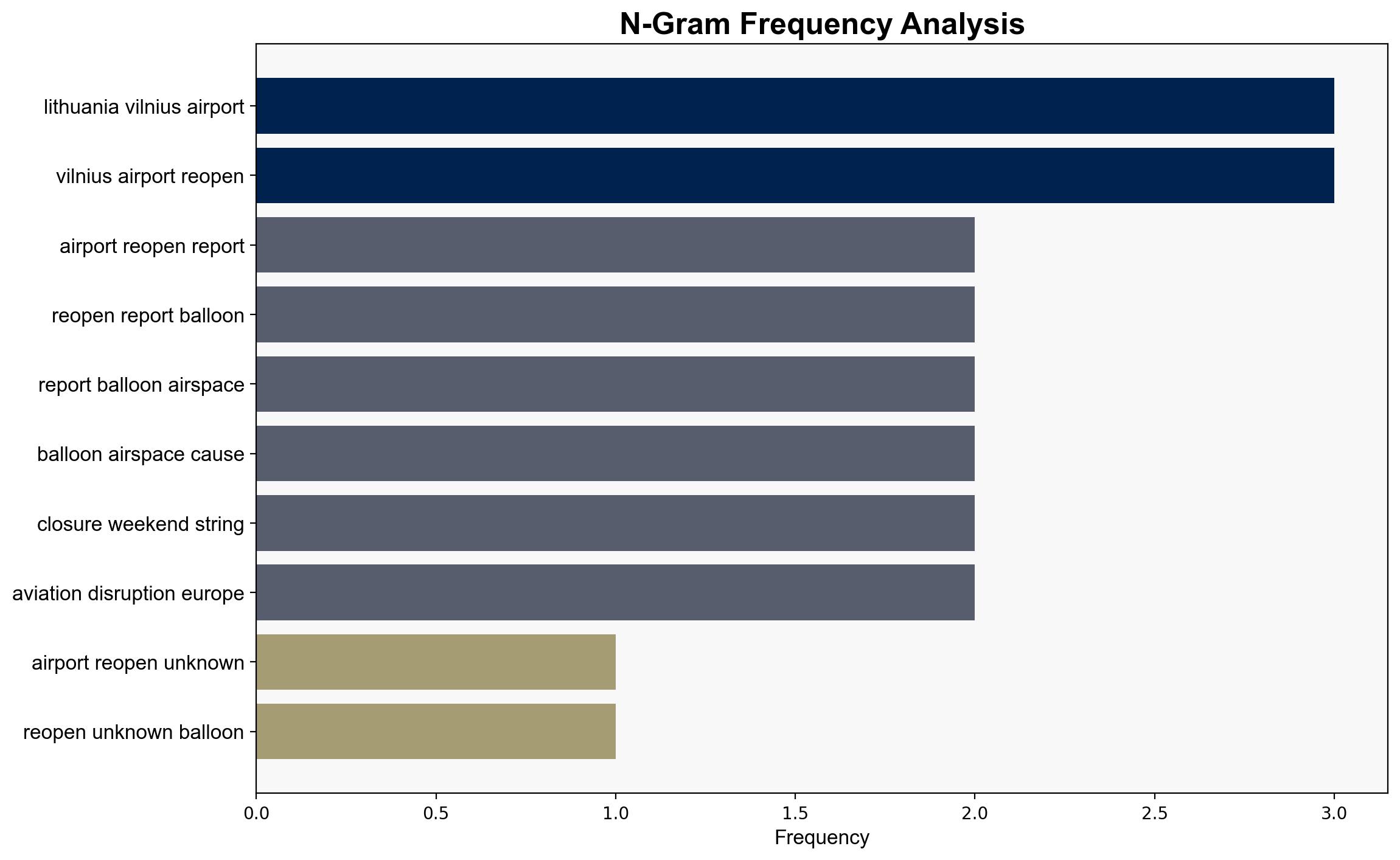Lithuania’s Vilnius Airport reopens after balloon sightings in airspace – ABC News (AU)
Published on: 2025-10-05
Intelligence Report: Lithuania’s Vilnius Airport reopens after balloon sightings in airspace – ABC News (AU)
1. BLUF (Bottom Line Up Front)
The most supported hypothesis is that the balloon sightings and related airspace disruptions are part of a coordinated series of provocations, potentially involving state or non-state actors, aimed at testing European air defenses and creating regional instability. Confidence level is moderate due to the lack of direct evidence linking these incidents to a specific actor. Recommended action includes enhancing regional airspace monitoring and increasing diplomatic engagement to address potential provocations.
2. Competing Hypotheses
1. **Hypothesis A**: The balloon sightings are part of a coordinated effort by a foreign state, possibly Russia, to test European air defenses and provoke regional instability. This hypothesis is supported by the pattern of similar incidents across Europe and the geopolitical context of heightened tensions involving Russia.
2. **Hypothesis B**: The balloon sightings are isolated incidents caused by non-state actors or hobbyists, with no strategic intent. This hypothesis considers the possibility of misidentification or unrelated activities coincidentally occurring during a period of heightened alert.
3. Key Assumptions and Red Flags
– **Assumptions**: Hypothesis A assumes a level of coordination and intent by a foreign state, while Hypothesis B assumes a lack of strategic intent and coordination.
– **Red Flags**: The lack of conclusive evidence linking the incidents to a specific actor is a significant red flag. Additionally, the potential for cognitive bias exists in interpreting these events through the lens of existing geopolitical tensions.
– **Inconsistent Data**: The absence of clear identification of the balloons and the lack of direct attribution to any actor are notable gaps.
4. Implications and Strategic Risks
The incidents could lead to increased regional tensions and strain diplomatic relations, particularly if misattributed to a foreign power. There is a risk of escalation if these events are perceived as deliberate provocations. Economically, continued disruptions could affect air travel and trade. Geopolitically, these incidents may prompt NATO and EU members to reassess their defense postures.
5. Recommendations and Outlook
- Enhance airspace monitoring and rapid response capabilities across Europe to mitigate future disruptions.
- Engage in diplomatic dialogue with Russia and other regional actors to clarify intentions and reduce the risk of miscalculation.
- Scenario Projections:
- Best Case: Incidents are confirmed as non-threatening, leading to de-escalation.
- Worst Case: Misattribution leads to heightened military readiness and potential conflict.
- Most Likely: Continued incidents with gradual improvement in monitoring and response, maintaining current tension levels.
6. Key Individuals and Entities
– Volodymyr Zelensky
– Alexander Dobrindt
– Troels Lund Poulsen
– Vladimir Putin
7. Thematic Tags
national security threats, cybersecurity, counter-terrorism, regional focus




